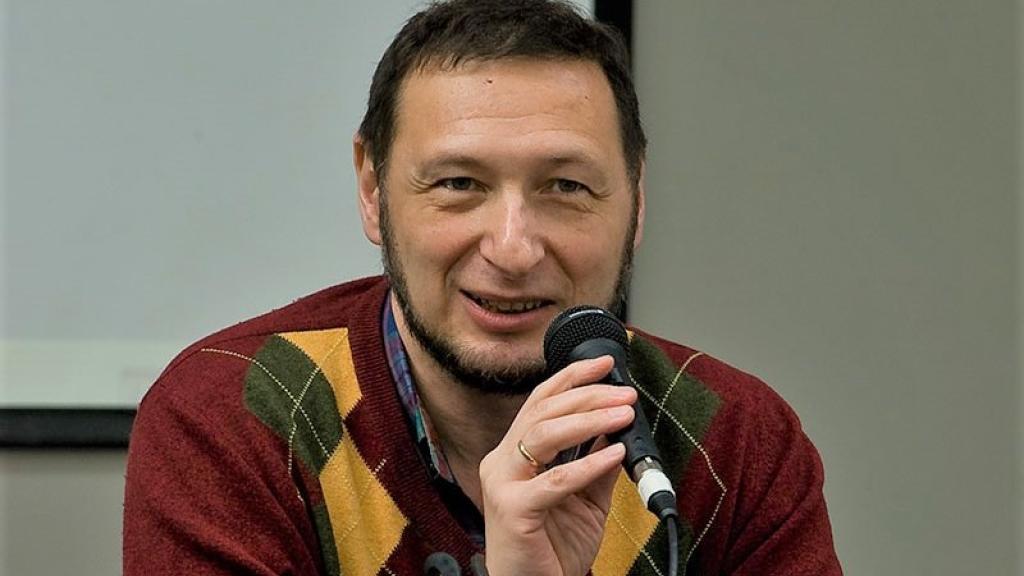“The whole world is becoming more like Russia.” A conversation on deglobalization in the wake of the war in Ukraine with Boris Kagarlitsky

First published at Ukraine War - Research in Political Science on September 19.
The Russian invasion of Ukraine has not only caused death, destruction, and dislocation, but has also had a huge impact on the international system and the world economy. Western sanctions have even exacerbated the already visible war-related disruptions to trade and finance. Several packages of sanctions imposed by the U.S., EU, Great Britain, and their allies have decoupled important parts of the Russian economy, the eleventh largest economy worldwide in 2021, from global markets. Simultaneously, EU member states have questioned their high dependency on Russian oil and gas imports and their geo-economic approach of “change through trade” (“Wandel durch Handel”, a truism among Germany’s political elite). Many observers, such as NY Times staff editor Spencer Bokat Lindell (2022), have even questioned whether the war in Ukraine might “spell the end of globalization” as the world experiences a period of economic deglobalization (see also Posen 2022).
In the wake of these developments, it is uncertain how long the war in Ukraine will last and which direction it will take. For the global economic and political system, however, it could become—much like the Covid-19 pandemic—a historic “point of bifurcation” (Rosa 2020). Its impact could be far-reaching and trigger societal changes: First, the conflict is creating new fault lines and fractures in globalization. Against the backdrop of looming gas shortages and supply chain disruptions, major transnational corporations and Western governments are reassessing the geopolitical risk of globalized production. “Friendshoring” (Maihold 2022) is the new buzzword of leading think tanks, which argue that geopolitical risks must be taken into account when establishing global supply chains. Second, as Putin’s attempt to annex Ukraine in a brief war is faltering and Western sanctions are hitting the Russian economy, the Russian government is forced to forge new partnerships. One of Russia’s closest allies at present is China, a huge potential market for Russian oil and gas exports. In addition, China would be able to support the troubled Russian economy with much-needed technological products and spare parts but has so far been reluctant to risk Western sanctions against Chinese companies. Third, the Ukraine war took the EU by surprise, as it is undergoing a far-reaching process of socio-ecological transformation and seeks to achieve carbon neutrality by 2050. This “new great transformation” (Dörre et al. 2019), driven by the “European Green Deal”, is currently under great pressure as Russian gas and oil imports need to be quickly replaced by other energy sources. This transition has led to a boom in (even dirtier) liquefied natural gas imports from the US and to a potential revival of nuclear energy. Fourth, rising living costs due to higher oil, gas, and food prices will have a global impact. A new inflation-driven “cycle of contention” (Tarrow 1998), accompanied by strikes and social protests in Europe and food riots in Africa, is a possible scenario for late 2022. While the political fallout of such a “winter of discontent” is hard to predict, protests are likely to influence politics in many gas and food-importing countries. However the global economy evolves, the war will have a lasting impact on the socioeconomic status and life chances of large segments of the world’s population. Fifth, it is difficult to analyze the global impact of the war in Ukraine without situating it within the long durée of the global financial crisis of 2008/09. Several scholars have argued that neoliberalism as well as the Russian oil-dependent development model have been in crisis ever since (Johnson and Köstem 2016). Today, the war and sanctions have forced many Western companies to leave Russia and the Putin regime to embark on a shaky path of a more inward-looking economic model with unclear long-term outcomes. The Ukraine war therefore raises many questions about the future of Russia and the capitalist world-system. To answer some of these questions, we conducted an interview with Boris Kagarlitsky, a professor at the Moscow School for Social and Economic Sciences and a long-standing analyst of Russian society, politics, and the global political economy. In the interview, Kagarlitsky, author of books such as The disintegration of the monolith (Kagarlitsky 1993) and Empire of the periphery. Russia and the world-system (Kagarlitsky 2008), analyzes the current state of the Russian society, economy, and the global impact of the war.
Download a PDF of the interview by clicking the link below.